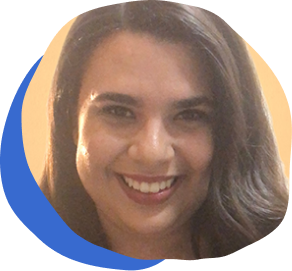Four Reasons to Do What You Love for a Living
 You’ve heard the cliche that life is too short. You don’t know what tomorrow brings or where you’ll end up. So why waste your time in a career that doesn’t make you happy? Read more ›
You’ve heard the cliche that life is too short. You don’t know what tomorrow brings or where you’ll end up. So why waste your time in a career that doesn’t make you happy? Read more ›
 You’ve heard the cliche that life is too short. You don’t know what tomorrow brings or where you’ll end up. So why waste your time in a career that doesn’t make you happy? Read more ›
You’ve heard the cliche that life is too short. You don’t know what tomorrow brings or where you’ll end up. So why waste your time in a career that doesn’t make you happy? Read more ›

 Navigating learning and mental health challenges is difficult; adding racial and ethnic diversity to the mix can magnify the inequities and complexities of the journey. Read more ›
Navigating learning and mental health challenges is difficult; adding racial and ethnic diversity to the mix can magnify the inequities and complexities of the journey. Read more ›
 Deciding if, when, and how to share disability-related information with a prospective or current employer can be overwhelming. The decision-making process requires answering a number of personal questions that may be different with each employment experience. Read more ›
Deciding if, when, and how to share disability-related information with a prospective or current employer can be overwhelming. The decision-making process requires answering a number of personal questions that may be different with each employment experience. Read more ›
 Serving customers across the United States and around the world for more than 35 years, the Job Accommodation Network (JAN) is the leading source of free, expert, and confidential guidance on job accommodations and disability employment issues. Read more ›
Serving customers across the United States and around the world for more than 35 years, the Job Accommodation Network (JAN) is the leading source of free, expert, and confidential guidance on job accommodations and disability employment issues. Read more ›
 More and more high school students with disabilities are planning to continue their education in postsecondary schools, including vocational and career schools, two- and four- year colleges, and universities.
More and more high school students with disabilities are planning to continue their education in postsecondary schools, including vocational and career schools, two- and four- year colleges, and universities.
As a student with a disability, you need to be well informed about your rights and responsibilities as well as the responsibilities postsecondary schools have toward you. Read more ›
 If you have depression, post-traumatic stress disorder (PTSD), or another mental health condition, you are protected against discrimination and harassment at work because of your condition, you have workplace privacy rights, and you may have a legal right to get reasonable accommodations that can help you perform and keep your job. Read more ›
If you have depression, post-traumatic stress disorder (PTSD), or another mental health condition, you are protected against discrimination and harassment at work because of your condition, you have workplace privacy rights, and you may have a legal right to get reasonable accommodations that can help you perform and keep your job. Read more ›
 Under the Americans with Disabilities Act (ADA) and other nondiscrimination laws, most employers must provide “reasonable accommodations” to qualified employees with disabilities. Many employers are aware of different types of accommodations for people with physical and communication disabilities, but they may be less familiar with accommodations for employees with disabilities that are not visible, such as mental health conditions. Read more ›
Under the Americans with Disabilities Act (ADA) and other nondiscrimination laws, most employers must provide “reasonable accommodations” to qualified employees with disabilities. Many employers are aware of different types of accommodations for people with physical and communication disabilities, but they may be less familiar with accommodations for employees with disabilities that are not visible, such as mental health conditions. Read more ›
 Support from schools can improve elementary and secondary students’ math, reading, and other language skills. But how can people with learning disabilities prepare for the demands of university or working life? Read more ›
Support from schools can improve elementary and secondary students’ math, reading, and other language skills. But how can people with learning disabilities prepare for the demands of university or working life? Read more ›
 While they should not replace professional treatment, mental health apps can offer several benefits.
While they should not replace professional treatment, mental health apps can offer several benefits.
The following tools have been curated by experts from the Catherine T. Harvey Center for Clinical Services at CHC. Read more ›
 Each year, tens of thousands of students diagnosed with autism spectrum disorders graduate from high school, many with aspirations to attend college. Yet only about 100 colleges, most of them four-year institutions, have standalone programs for those students, according to an analysis by members of the College Autism Network. Read more ›
Each year, tens of thousands of students diagnosed with autism spectrum disorders graduate from high school, many with aspirations to attend college. Yet only about 100 colleges, most of them four-year institutions, have standalone programs for those students, according to an analysis by members of the College Autism Network. Read more ›